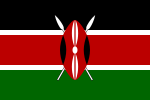
The Kikuyu are a Bantu ethnic group native to East Africa Central Kenya. At a population of 8,148,668 as of 2019, they account for 17.13% of the total population of Kenya, making them Kenya's largest ethnic group.
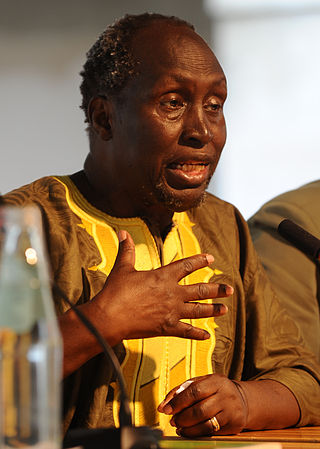
Ngũgĩ wa Thiong'o is a Kenyan author and academic, who has been described as "East Africa's leading novelist". He began writing in English, switching to write primarily in Gikuyu. His work includes novels, plays, short stories, and essays, ranging from literary and social criticism to children's literature. He is the founder and editor of the Gikuyu-language journal Mũtĩiri. His short story The Upright Revolution: Or Why Humans Walk Upright has been translated into 100 languages.

The culture of Kenya consists of multiple traditions and trends without a single prominent culture identifying the country. Kenyan cultural heritage and modern expressions of culture instead consist of various cultures, shaped and practiced by the country's different communities.
In June 1962 a conference of African literature in the English language, the first African Writers Conference, was held at Makerere University College in Kampala, Uganda. Officially called a "Conference of African Writers of English Expression", it was sponsored by the Congress for Cultural Freedom and the Mbari Club in association with the Department of Extra-Mural Studies of Makerere, whose director was Gerald Moore.

Grace Emily Ogot was a Kenyan author, nurse, journalist, politician and diplomat. Together with Charity Waciuma she was the first Anglophone female Kenyan writer to be published. She was one of the first Kenyan members of parliament and she became an assistant minister.

Mũkoma wa Ngũgĩ is a Kenyan American poet, author, and academic. He is associate professor of literatures in English at Cornell University and co-founder of the Safal-Cornell Kiswahili Prize for African Writing. His father is the author Ngũgĩ wa Thiong'o. His family was deeply impacted by the bloody British suppression of the Mau Mau revolution.
Mugo wa Kibiru or Chege (Cege) wa Kibiru was a Kenyan sage from the Gikuyu tribe who lived in the 18th and early 19th centuries. His name "Mugo" means "a healer". Mugo wa Kibiru was born in Kariara, Murang'a, near Thika, but his exact dates of birth and death are unknown.
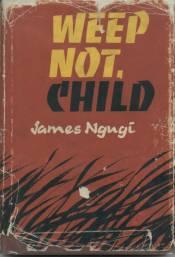
Weep Not, Child is a 1964 novel by Kenyan author Ngũgĩ wa Thiong'o. It was his first novel, published in 1964 under the name James Ngugi. It was among the African Writers Series. It was the first English novel to be published by an East African. Thiong'o's works deal with the relationship between Africans and white settlers in colonial Kenya, and are heavily critical of colonial rule. Specifically, Weep Not, Child deals with the Mau Mau Uprising, and "the bewildering dispossession of an entire people from their ancestral land." Ngũgĩ wrote the novel while he was a student at Makerere University.
Simon E. Gikandi is a Kenyan Literature Professor and Postcolonial scholar. He is the Class of 1943 University Professor of English at Princeton University. He is perhaps best known for his co-editorship of The Cambridge History of African and Caribbean Literature. He has also done important work on the modern African novel, and two distinguished African novelists: Chinua Achebe and Ngũgĩ wa Thiong'o. In 2019 he became the president of the Modern Language Association.

Petals of Blood is a novel written by Ngũgĩ wa Thiong'o and first published in 1977. Set in Kenya just after independence, the story follows four characters – Munira, Abdulla, Wanja, and Karega – whose lives are intertwined due to the Mau Mau rebellion. In order to escape city life, each retreats to the small, pastoral village of Ilmorog. As the novel progresses, the characters deal with the repercussions of the Mau Mau rebellion as well as with a new, rapidly westernizing Kenya.
Jonathan Kariara (1935–1993) was a Kenyan poet who wrote works including "A Leopard Lives in a Muu Tree". He was born in 1935 at the Church of Scotland Mission, Tumutumu, in Nyeri County, Kenya, in 1935.
Gabriel Ruhumbika is a Tanzanian born novelist, short story writer, translator and academic. His first novel, Village in Uhuru, was published in 1969. He has written several subsequent novels in Swahili. He has also taught literature at a number of universities, and, until his retirement in 2016, he was a professor of Comparative Literature at the University of Georgia in the USA.
Henry Chakava was a Kenyan publisher. He focused on the publication of books particularly in East Africa and has been called "the father of Kenyan publishing". For his contribution to educational and cultural literature in his region, he received several awards.
Kenyan crime fiction is a genre of crime fiction that is set in the country of Kenya, and usually written by Kenyan authors. According to G.J. Demko of Dartmouth College, "The fundamental premise of all [crime fiction] is a society that is ordered and real but becomes disordered as a result of a crime imposed on that society. In the normal case, a hero arrives - an officer of the law, a private detective or an amateur sleuth - and via logical deduction, hard work or luck, solves the crime, identifies the perpetrator, and order is restored." However, Kenyan crime fiction differs slightly from Demko's definition because of the following reasons: crime is often so pervasive in societies portrayed in Kenyan crime novels that it becomes almost a part of the order, and many times crimes are not conclusively solved by the end of the stories, mimicking the real-life cyclical nature of crime.
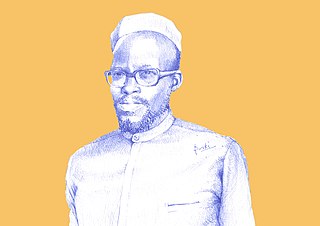
Pio Zirimu was a Ugandan linguist, scholar and literary theorist. He is credited with coining the word "orature" as an alternative to the self-contradictory term, "oral literature" used to refer to the non-written expressive African traditions. Zirimu was also central in reforming the literature syllabus at Makerere University to focus on African literature and culture instead of the English canon.
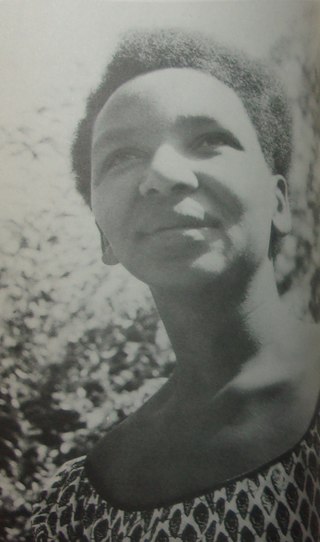
Rebeka Njau was Kenya's first female playwright and a pioneer in the representation of African women in literature. Her writing has addressed topics such as female genital mutilation and homosexuality. Her first novel, Ripples in the Pool (1975), appeared as number 203 in the Heinemann African Writers Series.
Busara was a literary journal published quarterly by the East African Publishing House, and later biannually, by the English Department at the University of Nairobi. It was first published under that name in 1968, and became one of the most influential literary journals of its time in Kenya. Jared Angira became its editor in chief in 1969.
